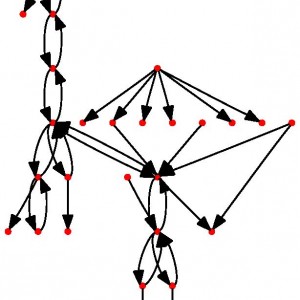During the past decade, it has become clear that those of us who care about teaching and learning need to imagine new ways of harnessing the potential of the digital age. How can we use digital tools to get a visual representation of students’ learning?
In the fall of 2008, we began a collaboration to see how wikis, a website that allows users to add, modify or delete content, might be used as tools for representing the web-like structure of historical knowledge — and, potentially, of knowledge in many subjects.
From the outset we knew we faced challenges familiar to humanities educators in higher education: Students ranged widely in ability levels, interest in the subject matter and motivation. In the context of introductory courses that require new kinds of relational thinking, we observed that many incoming students had not had sufficient opportunities to develop the skills to analyze, synthesize and deal with information, especially when they need to think integratively in multiple dimensions and wrestle with ambiguity. Like many scholars of learning, we are trying to develop more effective ways to engage students in deeper learning, especially the kind of higher order complex thinking that is a hallmark of education in the humanities.
Integrative thinking, both across and within disciplinary boundaries, is a skill repeatedly highlighted as one of the most important for personal and vocational success in the 21st century. We are all confronted with managing large amounts of often chaotic-seeming information, whether it is in the context of a history course or, more generally, in life. Yet, chaos does not equal meaninglessness; we make meaning by seeing patterns and making connections.

Courtesy of Ali Erkan
Consequently, we wondered if it was possible to use wikis to help students recognize patterns in what they were studying and make meaning from those patterns by connecting information. Over the past four years our project has been doing something novel. We are analyzing student learning outcomes not only based on the artifacts created through digital historical inquiry (the stories students tell by constructing a wiki) but also on the structures created “under the hood” of a new media tool. Through their linking mechanism, wikis allow for a multi-dimensional arrangement of information. This is basically the inverse process of producing concept maps. We believe that the connections emerging from student wikis have something important to tell us about both how they are making conceptual progress and how they differ from each other. As Stephen Downes, one of the theorists of connectivism puts it, “to learn is to emulate an entire organizational state and not merely to possess a simple set of facts.”
Our project has been funded by the National Endowment for the Humanities because our goal is to use technology to place greater emphasis on thinking. We believe that if our assessment of the gains of using this technique leads to positive results, we can also generalize it into a tool that can be used in any context that deals with a wealth of information.
Ali erkan is an associate professor of computer science at Ithaca College. Email him at [email protected]. Michael Smith is an associate professor of history at Ithaca College. Email him at [email protected].







